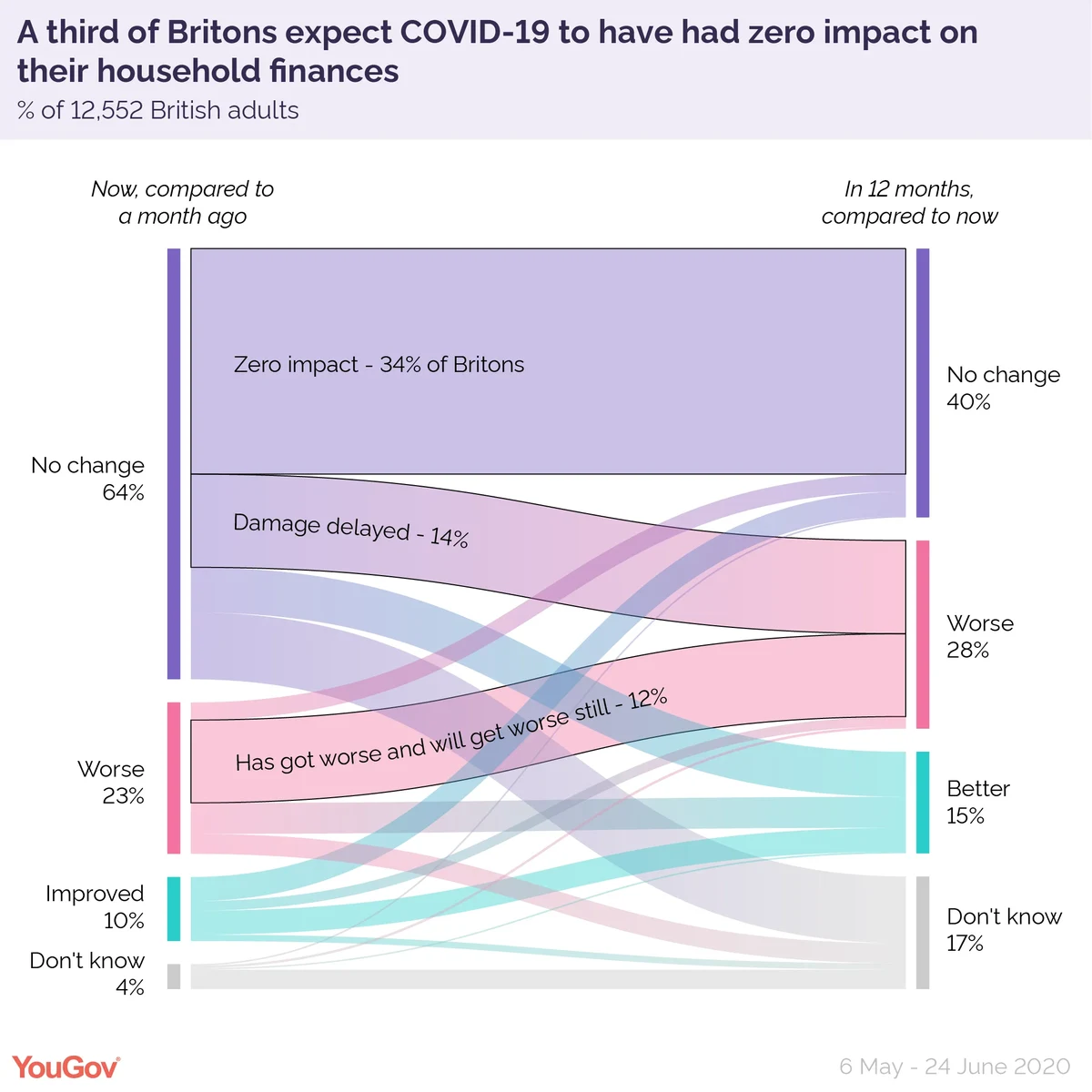YouGov’s economic recovery tracker asks Britons how they feel about their family income
With Britons now as worried about the economic implications of coronavirus as they are the health concerns, YouGov’s economic recovery tracker reveals how the crisis has affected the nation’s finances.
Approaching two thirds of Britons (64%) told us that there had been no change in their household finances in the preceding month.* A further quarter (23%) said their financial situation had deteriorated, and 10% said it had gotten better.
Asked to guess what their monetary situation will be in 12 month’s time, figures are more gloomy. Only 40% now expect their finances to have remained in the same state. The number who think they will get worse stands at 28%, and 15% think they will get better. A further 17% are uncertain.
Breaking the results down by socio-economic grade reveals identical attitudes, with ABC1 and C2DE households feeling similarly affected so far and likewise forecasting their finances along the same lines.
Combining respondents’ answers to these two questions allows us to take a more detailed look at the nation’s attitudes.
The single largest group of respondents is that which expects coronavirus to have had zero impact on their household finances, having said their cash levels hadn’t changed over the last month and won’t change over the next year. This group accounts for around a third of Britons (34%).
Next up is the “damage delayed” group. These Brits say their household finances have stayed consistent in the preceding month, but expect them to get worse over the next year. This group covers around one in seven Britons (14%).
The self-explanatory “has got worse and will get worse still” group covers a similar proportion of the population, at 12%.
*The fieldwork consisted of 8 surveys over the course of 8 weeks in May and June. No significant difference in results was recorded over the course of the study, so we have combined all 8 weeks’ data into one figure for the purposes of this analysis











